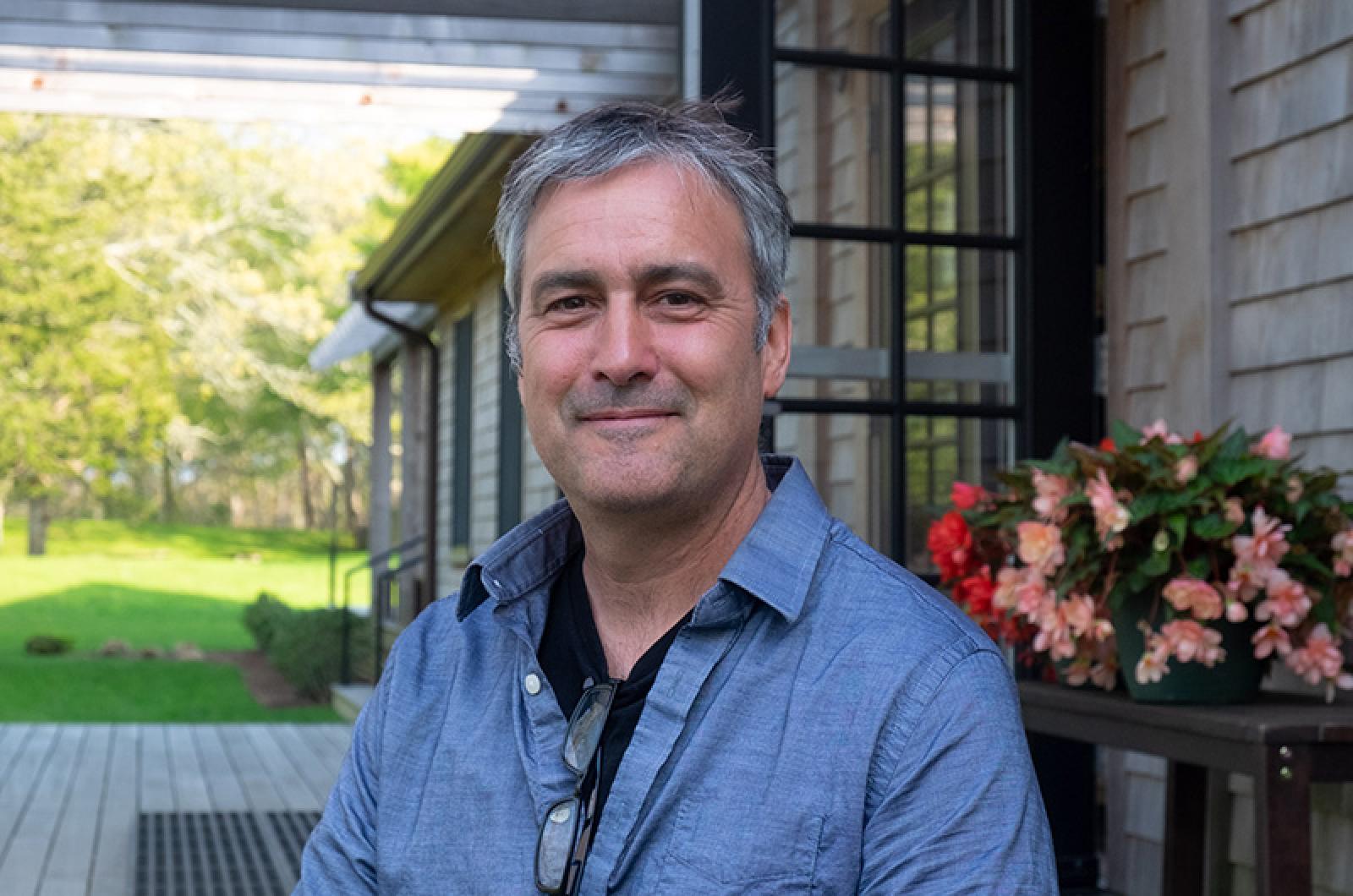Justen Ahren has always been a musician as well as a writer, releasing his first album Remembering more than 20 years ago. A past poet laureate of Martha’s Vineyard (2017-2018) and West Tisbury (2013-2016), he is also a photographer whose compelling black and white images both illustrate and inform his poetry and music.
Mr. Ahren uses all three gifts to witness the plight of refugees to Europe in his new book of poems and photographs, A Machine for Remembering, and a companion digital album titled The War for the Valley.
Both works were already underway when Mr. Ahren went to the Greek island of Lesvos last March to volunteer for two weeks with a Norwegian refugee aid organization, A Drop in the Ocean.
“By the time I went to volunteer, I was well into this project,” he said. “I was deeply immersed, as much as I could be.”
While he had been photographing refugee routes in Italy and writing about the displaced in his poetry, the decision to volunteer in Greece came only after his teenage son gave him “permission” to leave the family and travel overseas, Mr. Ahren said this week.
“I was looking for a way to do more than just write about it,” he said. “I really give a lot of credit to my son because he said to me at some point in the middle of the winter, ‘Dad, you’re writing all about refugees, why don’t you go help them?’”
On Lesvos, Mr. Ahren spent his nights patrolling the shore to help rescue Syrians and other refugees arriving by sea from Turkey, and volunteered at a community center during the day. He also shot photographs, but never of the refugees themselves, for their own protection and to avoid exploiting their vulnerability.
About 2,000 people came ashore on Lesvos during March, 2018—down from the 3,000 to 5,000 daily arrivals during the height of the refugee crisis a few years earlier, he said.
Three landings took place during Mr. Ahren’s time on the island, which had been a popular tourist destination before the crisis. “There are usually 40 to 60 people in an inflatable dinghy,” he said.
In the book, images of broken boats and a graveyard for thousands of life jackets accompany words freighted with anguish, loss, longing and a desperate sensuality.
“In the rubble of shoulders/in the smolder of eyes/through the silence of curfews/what we seek is nothing to feel ashamed of,” Mr. Ahren writes in one of several poems titled Fragment: East 2nd Avenue.
His nameless characters speak of life under occupation: eating leaves from trees, burning furniture and stairs to stay warm, seeing bodies in the street. Even in protected moments when lovers are alone together, light from a television casts “the burn shadow of our bodies/against the bedroom wall.”
Shadows, silhouettes and fragments are recurring themes in Mr. Ahren’s poems, which give voice to the almost unspeakable experiences of those who fled destruction at home only to become penned in massive camps abroad.
“These moments are sacred with emotion and trauma and urgency, and we make them sacred by listening to them,” Mr. Ahren told the audience at his book launch reading Sunday night in the Art Barn at Featherstone Center for the Arts. To begin his reading, Mr. Ahren sang one of his songs from The War for the Valley, a poignant ballad titled 3:10 A.M. On the album, Mr. Ahren’s piano playing contributes an almost insupportable melancholy to the song.
Produced and engineered by Dana Edelman, the album also features Mr. Edelman on guitar and Nina Violet on strings and string arrangements.
The book has 41 poems, sharing just 12 titles among them. Mr. Ahren said he chose to rotate titles not for a musical effect, but because the nature of traumatic memory is cyclical—the same experiences recur, but they are not always the same.
A Machine for Remembering is Mr. Ahren’s second book of poetry, following A Strange Catechism (2013). The War for the Valley is available through Amazon and iTunes. His website, justenahren.com, includes more of his Lesvos photographs as well as those from his earlier series documenting refugee routes in Italy.







Comments
Comment policy »